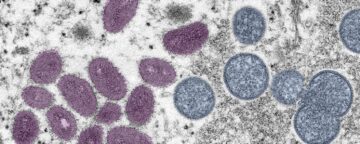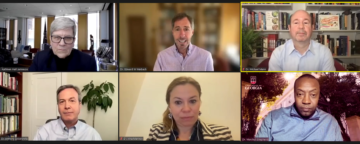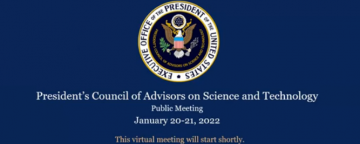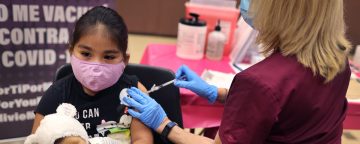Some in the public have begun to voice concern about the new health threat of monkeypox, according to a new Annenberg Public Policy Center national survey.


Some in the public have begun to voice concern about the new health threat of monkeypox, according to a new Annenberg Public Policy Center national survey.

Climate scientist Michael Mann led the panel "Urgency, Agency, and Climate Action: The Role of Communication" for the spring Annenberg Seminar.

After Dr. Mehmet Oz endorsed the MMR vaccine on “The Dr. Oz Show,” significantly more people in a segment of his audience regarded the MMR and flu vaccine as low-risk.

At a meeting of PCAST, APPC director Kathleen Hall Jamieson proposed four ways the government could improve communication on consequential health and science issues.

New survey shows 93% of U.S. adults who are vaccinated and boosted against Covid-19 say they would be likely to recommend vaccinating children 5-11.

APPC Director Kathleen Hall Jamieson was among the Penn scholars named this year as AAAS fellows by the American Association for the Advancement of Science.

Americans’ confidence in the CDC and in Dr. Anthony Fauci declined in January with drops both among groups of Democrats/Democratic-leaning independents and Republicans/Republican-leaning independents, according to January survey data.